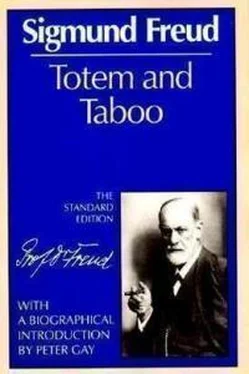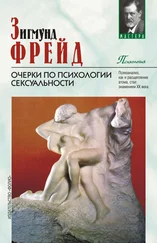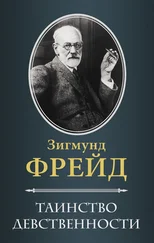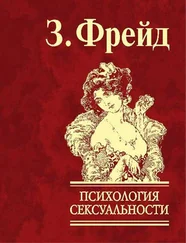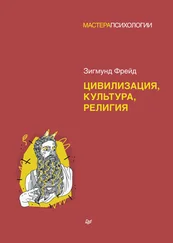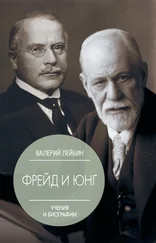Зигмунд Фрейд - Totem and Taboo
Здесь есть возможность читать онлайн «Зигмунд Фрейд - Totem and Taboo» весь текст электронной книги совершенно бесплатно (целиком полную версию без сокращений). В некоторых случаях можно слушать аудио, скачать через торрент в формате fb2 и присутствует краткое содержание. Год выпуска: 2014, Издательство: epubBooks Classics, Жанр: Психология, на английском языке. Описание произведения, (предисловие) а так же отзывы посетителей доступны на портале библиотеки ЛибКат.
- Название:Totem and Taboo
- Автор:
- Издательство:epubBooks Classics
- Жанр:
- Год:2014
- ISBN:нет данных
- Рейтинг книги:3 / 5. Голосов: 1
-
Избранное:Добавить в избранное
- Отзывы:
-
Ваша оценка:
- 60
- 1
- 2
- 3
- 4
- 5
Totem and Taboo: краткое содержание, описание и аннотация
Предлагаем к чтению аннотацию, описание, краткое содержание или предисловие (зависит от того, что написал сам автор книги «Totem and Taboo»). Если вы не нашли необходимую информацию о книге — напишите в комментариях, мы постараемся отыскать её.
Totem and Taboo — читать онлайн бесплатно полную книгу (весь текст) целиком
Ниже представлен текст книги, разбитый по страницам. Система сохранения места последней прочитанной страницы, позволяет с удобством читать онлайн бесплатно книгу «Totem and Taboo», без необходимости каждый раз заново искать на чём Вы остановились. Поставьте закладку, и сможете в любой момент перейти на страницу, на которой закончили чтение.
Интервал:
Закладка:
In the clinical history of the case we have emphasized the appearance of the prohibition in early childhood as the determining factor; but for the further elaboration of the neurosis this rôle is played by the repression which appears at this age. On account of the repression which has taken place, which is connected with forgetting (amnesia), the motivation of the prohibition that has become conscious remains unknown, and all attempts to unravel it intellectually must fail, as the point of attack cannot be found. The prohibition owes its strength—its compulsive character—to its association with its unknown counterpart, the hidden and unabated pleasure, that is to say, to an inner need into which conscious insight is lacking. The transferability and reproductive power of the prohibition reflect a process which harmonizes with the unconscious pleasure and is very much facilitated through the psychological determinants of the unconscious. The pleasure of the impulse constantly undergoes displacement in order to escape the blocking which it encounters and seeks to acquire surrogates for the forbidden in the form of substitutive objects and actions. For the same reason the prohibition also wanders and spreads to the new aims of the proscribed impulse. Every new advance of the repressed libido is answered by the prohibition with a new severity. The mutual inhibition of these two contending forces creates a need for discharge and for lessening the existing tension, in which we may recognize the motivation for the compulsive acts. In the neurosis there are distinctly acts of compromise which on the one hand may be regarded as proofs of remorse and efforts to expiate and similar actions; but on the other hand they are at the same time substitutive actions which recompense the impulse for what has been forbidden. It is a law of neurotic diseases that these obsessive acts serve the impulse more and more and come nearer and nearer to the original and forbidden act.
We may now make the attempt to study taboo as if it were of the same nature as the compulsive prohibitions of our patients. It must naturally be clearly understood that many of the taboo prohibitions which we shall study are already secondary, displaced and distorted, so that we shall have to be satisfied if we can shed some light upon the earliest and most important taboo prohibitions. We must also remember that the differences in the situation of the savage and of the neurotic may be important enough to exclude complete correspondence and prevent a point by point transfer from one to the other such as would be possible if we were dealing with exact copies.
First of all it must be said that it is useless to question savages as to the real motivation of their prohibitions or as to the genesis of taboo. According to our assumption they must be incapable of telling us anything about it since this motivation is ‘unconscious’ to them. But following the model of the compulsive prohibition we shall construct the history of taboo as follows: Taboos are very ancient prohibitions which at one time were forced upon a generation of primitive people from without, that is, they probably were forcibly impressed upon them by an earlier generation. These prohibitions concerned actions for which there existed a strong desire. The prohibitions maintained themselves from generation to generation, perhaps only as the result of a tradition set up by paternal and social authority. But in later generations they have perhaps already become ‘organized’ as a piece of inherited psychic property. Whether there are such ‘innate ideas’ or whether these have brought about the fixation of the taboo by themselves or by co–operating with education no one could decide in the particular case in question. The persistence of taboo teaches, however, one thing, namely, that the original pleasure to do the forbidden still continues among taboo races. They therefore assume an ambivalent attitude toward their taboo prohibitions; in their unconscious they would like nothing better than to transgress them but they are also afraid to do it; they are afraid just because they would like to transgress, and the fear is stronger than the pleasure. But in every individual of the race the desire for it is unconscious, just as in the neurotic.
The oldest and most important taboo prohibitions are the two basic laws of totemism : namely not to kill the totem animal, and to avoid sexual intercourse with totem companions of the other sex.
It would therefore seem that these must have been the oldest and strongest desires of mankind. We cannot understand this and therefore we cannot use these examples to test our assumptions as long as the meaning and the origin of the totemic system is so wholly unknown to us. But the very wording of these taboos and the fact that they occur together will remind any one who knows the results of the psychoanalytic investigation of individuals, of something quite definite which psychoanalysts call the central point of the infantile wish life and the nucleus of the later neurosis [44] See Chapter IV; Totemism, etc.
.
All other varieties of taboo phenomena which have led to the attempted classifications noted above become unified if we sum them up in the following sentence. The basis of taboo is a forbidden action for which there exists a strong inclination in the unconscious.
We know, without understanding it, that whoever does what is prohibited and violates the taboo, becomes himself taboo. But how can we connect this fact with the other, namely that the taboo adheres not only to persons who have done what is prohibited but also to persons who are in exceptional circumstances, to these circumstances themselves, and to impersonal things? What can this dangerous attribute be which always remains the same under all these different conditions? Only one thing, namely, the propensity to arouse the ambivalence of man and to tempt him to violate the prohibition.
An individual who has violated a taboo becomes himself taboo because he has the dangerous property of tempting others to follow his example. He arouses envy; why should he be allowed to do what is prohibited to others? He is therefore really contagious , in so far as every example incites to imitation and therefore he himself must be avoided.
But a person may become permanently or temporarily taboo without having violated any taboos, for the simple reason that he is in a condition which has the property of inciting the forbidden desires of others and of awakening the ambivalent conflict in them. Most of the exceptional positions and conditions have this character and possess this dangerous power. The king or chieftain rouses envy of his prerogatives; everybody would perhaps like to be king. The dead, the newly born, and women when they are incapacitated all act as incitements on account of their peculiar helplessness, while the individual who has just reached sexual maturity tempts through the promise of a new pleasure. Therefore all these persons and all these conditions are taboo, for one must not yield to the temptations which they offer.
Now, too, we understand why the forces inherent in the ‘mana’ of various persons can neutralize one another so that the mana of one individual can partly cancel that of the other. The taboo of a king is too strong for his subject because the social difference between them is too great. But a minister, for example, can become the harmless mediator between them. Translated from the language of taboo into the language of normal psychology this means: the subject who shrinks from the tremendous temptation which contact with the king creates for him can brook the intercourse of an official, whom he does not have to envy so much and whose position perhaps seems attainable to him. The minister, on his part, can moderate his envy of the king by taking into consideration the power that has been granted to him. Thus smaller differences in the magic power that lead to temptation are less to be feared than exceptionally big differences.
Читать дальшеИнтервал:
Закладка:
Похожие книги на «Totem and Taboo»
Представляем Вашему вниманию похожие книги на «Totem and Taboo» списком для выбора. Мы отобрали схожую по названию и смыслу литературу в надежде предоставить читателям больше вариантов отыскать новые, интересные, ещё непрочитанные произведения.
Обсуждение, отзывы о книге «Totem and Taboo» и просто собственные мнения читателей. Оставьте ваши комментарии, напишите, что Вы думаете о произведении, его смысле или главных героях. Укажите что конкретно понравилось, а что нет, и почему Вы так считаете.
